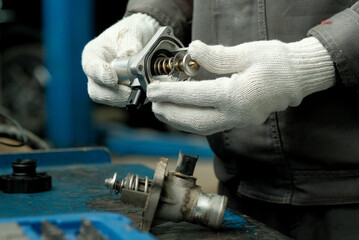
When an accident is caused by defective parts, any company or entity involved in the vehicle’s production can be held liable. If you were involved in a crash speak with a York County, PA auto accident attorney for more information and representation during your claim or lawsuit.
What Are Some Common Car Part Defects?
Because cars are big machines, tens of thousands of parts are required to create a safe and functioning vehicle. If even one of these parts has an issue or defect it could create a safety hazard and lead to an accident, injuries, or death.
Product defects are generally broken into three categories. Consider the following.
- Design defects: Design defects refer to issues with the way the product was designed. All products, especially car parts, need to fit perfectly into their spot and function as intended. If there is a safety issue or defect in the way it was conceptualized it will undoubtedly cause a problem later on.
- Manufacturing defects: Manufacturing defects occur during the creation or building process when a product is not manufactured according to its specifications and design.
- Marketing defects: A marketing defect refers to a lack of or insufficient instruction and warnings. Consumers must be aware of the risks they take by using the product and understand how to safely operate the vehicle. Without this information, there is more risk of an accident and injury.
Common car part defects that fall into the above categories include:
- Defective seatbelt latch
- Broken seatbelt retractors or tension detector
- Faulty tire tread
- Airbags failing to deploy, deploying unprompted, or deploying too forcefully
- Faulty fuel systems
- Brake failure
- Steering defects
When one or more parts of a vehicle are defective and do not operate properly there is a much higher risk of the driver losing control of the car and causing an accident.
Who is Liable for a Car Accident Caused By Defective Parts?
Depending on the details of a car accident one or more of several individuals and entities can be held liable for the resulting damages. Generally, the drivers involved are negligent and cause the collision. However, when a defective part is the catalyst for a crash, liability can be more complex.
One of the companies that can be held accountable for a defective part is the manufacturer. Whether there was an issue with the design, the product was built incorrectly, or it was not properly installed, if the part was faulty because of the manufacturer they may be responsible for paying compensation and damages.
The distributor can also be held liable if the issue arose on their watch. If they modified the product after manufacturing, mishandled it, provided defective parts, etc. then the accident could be considered their fault. Their negligence could result in liability.
The dealership could also be found responsible if they sold a defective car or part. A mechanic or autobody repair shop may share blame if they were negligent when installing a part. Any company that had hands on the vehicle could be found partially liable for the accident. Speak with a lawyer for more information.

